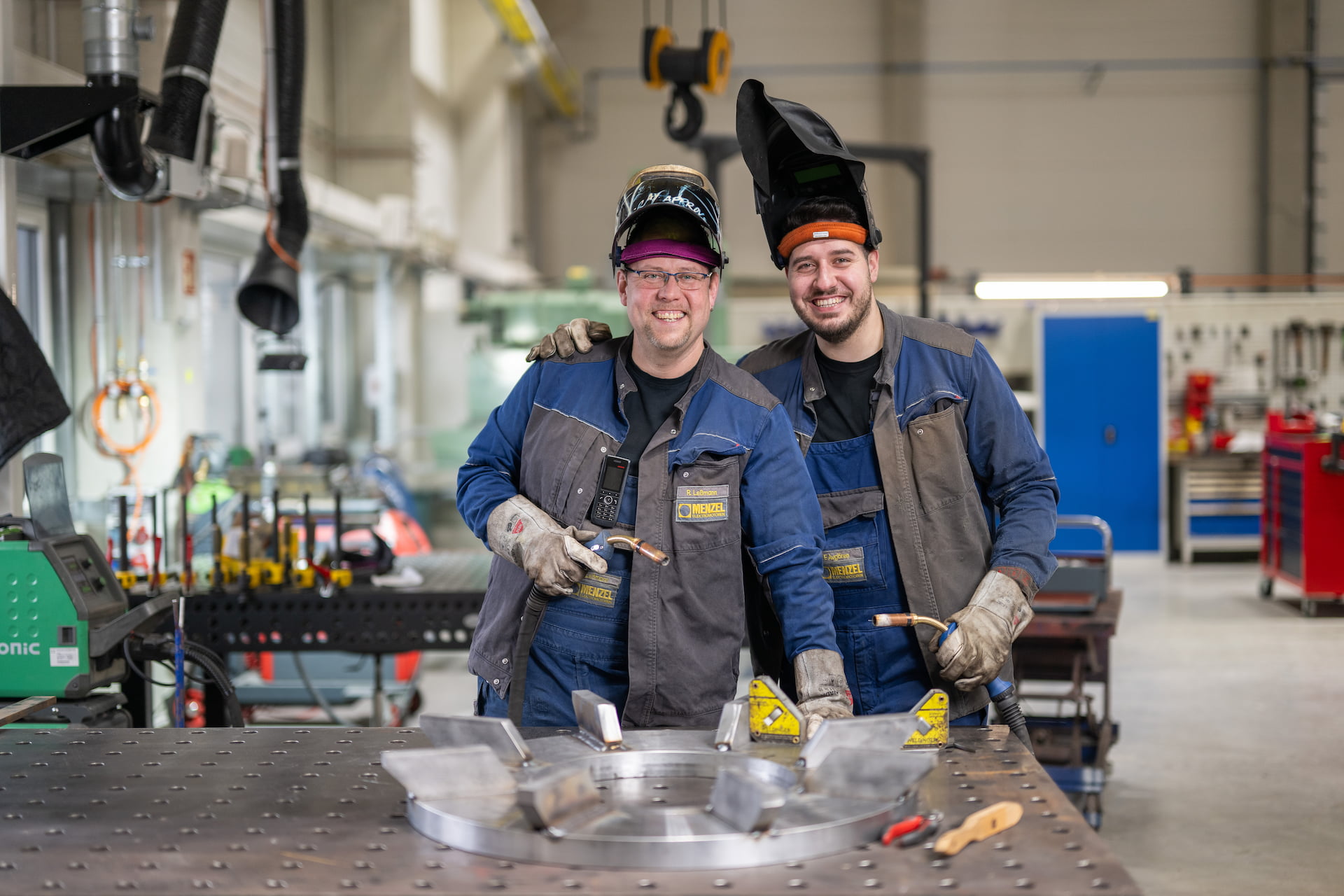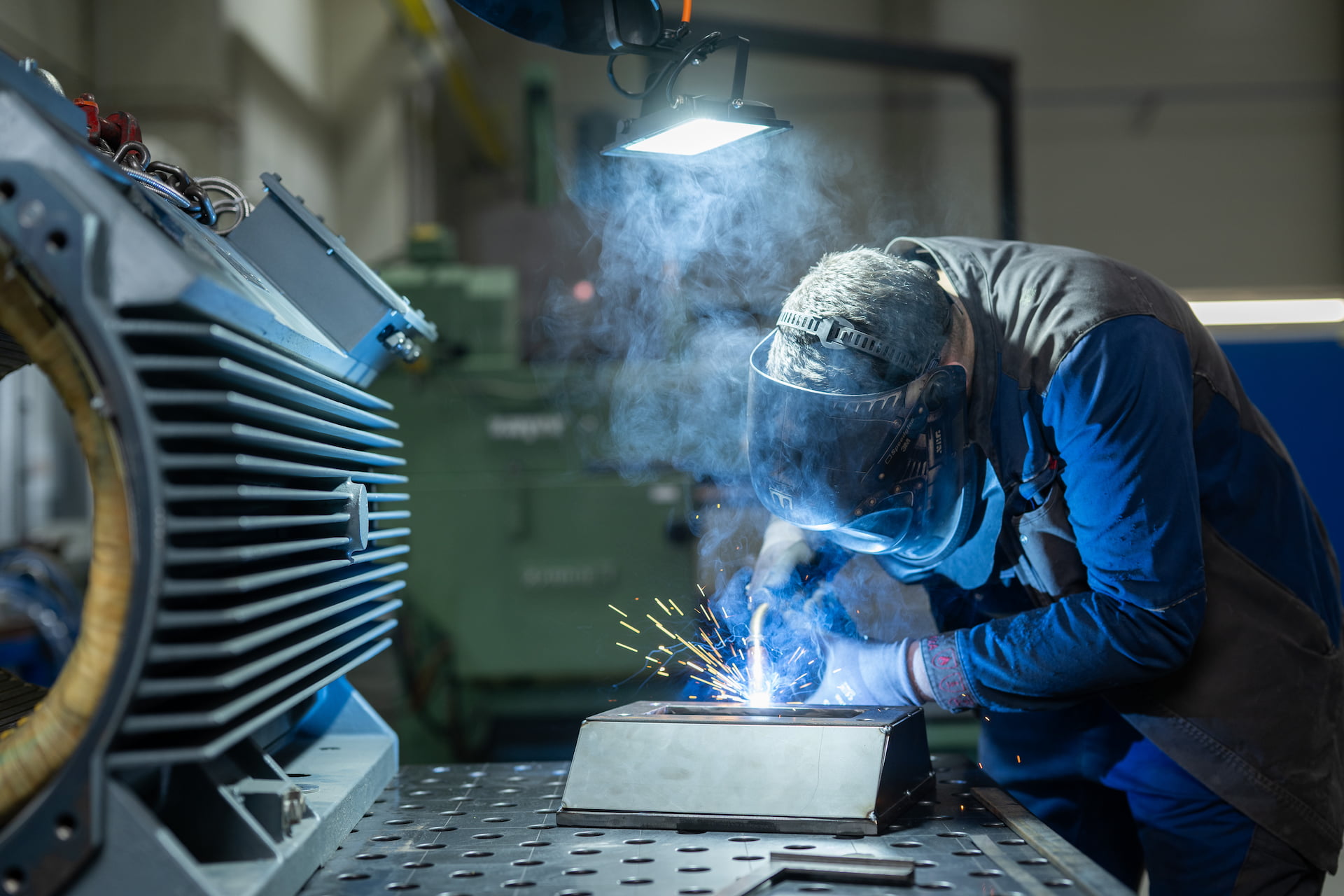And does your actual work at MENZEL change anything for you now?
Yes and no. Before the training programme, I always worked as a stand-in in assembly or in the welding shop. Now I actually only work in the welding shop and use my knowledge there. The instructional responsibility that a welding specialist has still lies with Mr Leßmann, who has the position with us. But of course we exchange ideas, I ask him questions and he also asks me, because I'm fresh out of school now. And I also have the ambition to tackle and solve things independently. So we support each other.
Did you always realise that you wanted to work with your hands?
I made very good use of my work placements when I was at school. My first internship in year 8 was at a law firm. However, I realised relatively quickly that an office job wasn't for me and that I didn't want to become a lawyer. My next internships were always in the skilled trades: from car mechanic to cutting machine operator and also plant mechanic at Berliner Wasserbetriebe. This allowed me to gain a lot of experience, which really helped me later during my apprenticeship: for example, I was already familiar with files and saws and was allowed to use the lathe and milling machine during my internships - together with journeymen, of course. I even built something myself during my internship that I still use for work today. It was a tap wrench for a thread cutter.
After leaving school, I applied to various companies and then decided in favour of MENZEL from several offers, partly because it was really attractive financially and a somewhat larger company.
Why do you see it as an advantage to work in a slightly larger company?
In smaller craft businesses, the pay is lower and the pressure is greater. And it's also not easy to ‘survive’ there, I mean with older colleagues who are well-rehearsed and not always willing to change. It's somehow more difficult to gain a foothold there as a young person than at MENZEL, for example. Our workforce is very mixed in terms of age. It wasn't always like that. I think it started in 2019 with a lot of young people coming in. I think it's important that something fresh keeps coming in. One of Mr Menzel's favourite words is ‘efficiency’. And it has to be said that the young colleagues are always providing new impetus to further develop the company in this sense and want to move with the times - for example, to make everyday work easier and optimise work steps. Of course, this happens in combination with the experience of older colleagues.
Speaking of experience: Do you already have new training plans?
I definitely want to continue my training! The next step would probably be - I haven't quite decided yet - to become a state-certified welding technician.

